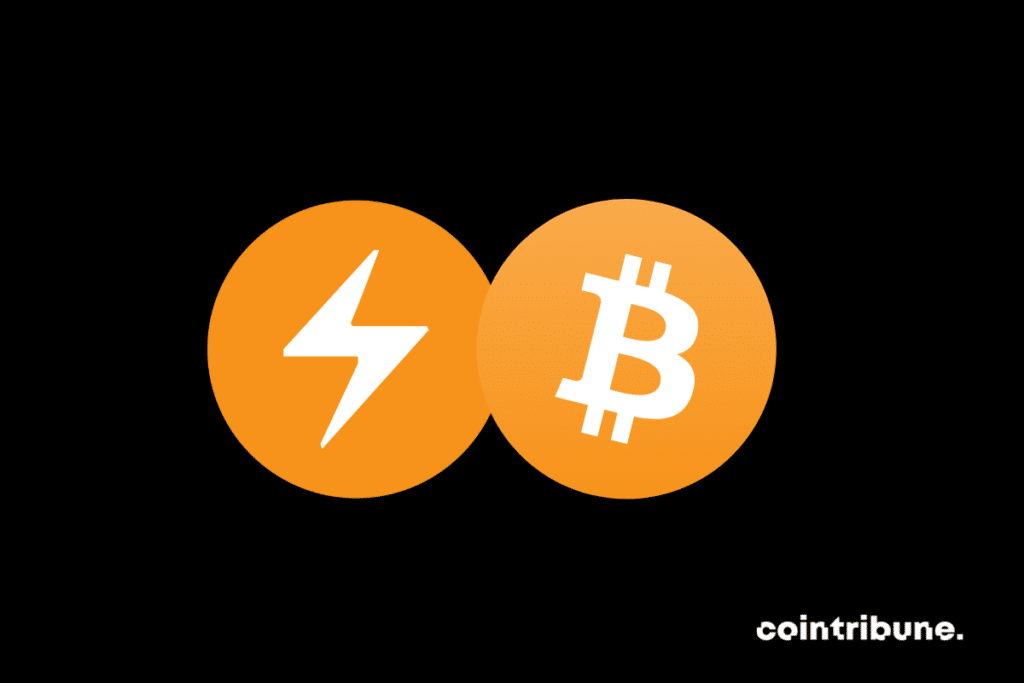— Boncryp Digital Asset Advocate (@boncryp) December 13, 2023
A
A
Bitcoin (BTC): When the Lightning Network Exposes You to Risks
Sat 16 Dec 2023 ▪
3
min read ▪ by
Getting informed
▪
The Lightning Network is certainly one of the major developments in the Bitcoin ecosystem. Several users are fond of it. However, a recent incident has demonstrated the limitations of this technology. A crypto user indeed noticed the siphoning of their BTC holdings related specifically to the operational flaws of the Lightning Network plugin.

The Lightning Network, a Limited Crypto Technology?
The Lightning Network needs no introduction. Recently, this crypto technology designed to improve the scalability of Bitcoin (BTC) transactions set performance records, achieving notably a dramatic 1212% increase in two years.
This just goes to show how popular the Lightning Network is, particularly among users. Thanks to improved scalability, it enables faster crypto transactions, but also cheaper transactions.
Yet, despite these advantages, the Lightning Network is far from perfect. This technology evidently has flaws that make it particularly risky for users who are keen on it, like Hugo Ramos.
Indeed, this Portuguese crypto enthusiast recently experienced the consequences of the inherent flaws in the Lightning Network. These flaws were exploited by hackers to snatch the few BTC holdings stored in his wallet.
An Incident that Highlights the Associated Risks of the Lightning Network
It is true that the Lightning Network plays a crucial role in the improvement of the Bitcoin ecosystem. But the incident that recently affected the Portuguese crypto enthusiast Hugo Ramos has finished confirming what several analysts have been saying about this technology. Namely, that it is not the best in terms of operational security.
Crypto user Hugo Ramos can attest to this. He discovered, on Wednesday, December 6, the siphoning of the majority of the balance of his LN node. Upon investigation, it turned out that the malicious operation had targeted and reached, via a bug, the LNbank plugin of the Lightning Network. A crypto tool developed by Dennis Reimann within the BTCPay server. The latter would indeed recognize, two days after the incident, the critical vulnerability of his tool.
This revelation is of no practical use to Hugo Ramos who saw the entirety of his 4.07 BTC holdings disappear from his wallet, equivalent to $172,000. As he wonders how he might recover what seems to be all of his savings, his story alerts the crypto community.
It seems unaware of the experimental nature of the Lightning Network. A fact that should encourage it to avoid keeping significant assets in it while respecting the measures for securing one’s crypto wealth.
Maximize your Cointribune experience with our "Read to Earn" program! For every article you read, earn points and access exclusive rewards. Sign up now and start earning benefits.
A
A
Diplômé de Sciences Po Toulouse et titulaire d'une certification consultant blockchain délivrée par Alyra, j'ai rejoint l'aventure Cointribune en 2019. Convaincu du potentiel de la blockchain pour transformer de nombreux secteurs de l'économie, j'ai pris l'engagement de sensibiliser et d'informer le grand public sur cet écosystème en constante évolution. Mon objectif est de permettre à chacun de mieux comprendre la blockchain et de saisir les opportunités qu'elle offre. Je m'efforce chaque jour de fournir une analyse objective de l'actualité, de décrypter les tendances du marché, de relayer les dernières innovations technologiques et de mettre en perspective les enjeux économiques et sociétaux de cette révolution en marche.
DISCLAIMER
The views, thoughts, and opinions expressed in this article belong solely to the author, and should not be taken as investment advice. Do your own research before taking any investment decisions.